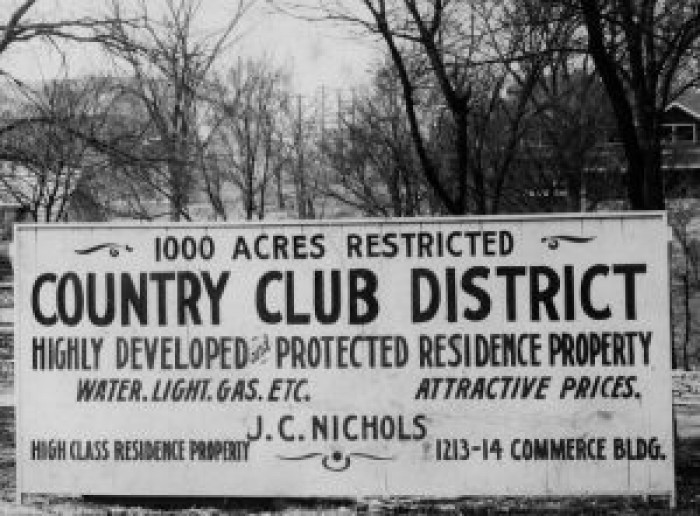Racial covenants: Revealing the impact of racial covenants on your home's history
Tracing the lasting impact of racial covenants on communities and homes.
June 23, 2023
Photo from the State Historical Society of Missouri, via Housing.Wiki
What are Racial Covenants?
Racial covenants, a dark chapter in the history of the United States, were contractual agreements that wielded immense influence in shaping housing and communities. These covenants, also known as racially restrictive covenants, emerged in the late 19th and early 20th centuries, serving as powerful tools for enforcing racial segregation and discrimination. Understanding their definition, historical context, and significance is crucial for comprehending the deep-rooted challenges faced by marginalized communities even today.
Racial covenants can be defined as contractual provisions incorporated into property deeds or agreements that explicitly restricted the sale, lease, or occupation of land and properties based on the racial or ethnic identity of the buyer or occupant. The covenants sought to exclude non-white individuals, particularly African Americans, but also targeted other minority groups such as Asian Americans, Hispanic Americans, and Jewish Americans. By imposing these restrictions, racial covenants effectively perpetuated segregation, bolstered racial hierarchies, and marginalized communities.
To fully grasp the significance of racial covenants, it is essential to delve into their historical context. The emergence of these covenants can be traced back to a period following the Civil War, when African Americans gained certain legal rights and freedoms. Fueled by racial tensions and a desire to maintain social and racial hierarchies, white Americans utilized racial covenants as a means of exerting control and preserving racial segregation. These covenants gained popularity during the early 20th century, coinciding with the rapid urbanization and migration from rural areas to cities.
Racial covenants had a far-reaching impact on housing and communities. They contributed to the creation of racially segregated neighborhoods, perpetuated racial inequality, and imposed economic and educational disparities upon marginalized groups. These covenants played a significant role in shaping the landscape of cities across the United States and cementing the foundations of systemic discrimination.
Although courts eventually deemed racial covenants unenforceable in 1948, their legacy persists. Communities continue to grapple with the enduring effects of racial segregation and housing disparities that were perpetuated by these covenants. Recognizing and addressing this historical injustice is imperative for fostering a more equitable and inclusive society, where everyone has equal opportunities and access to housing.
In the following sections, we will delve deeper into the origins and development of racial covenants, their key features and enforcement, the impact they had on marginalized communities, the challenges and resistance faced, and the contemporary implications that persist. By shedding light on the history of racial covenants, we can better understand the urgency of addressing their legacy and working towards a more just and inclusive future.
Origins and Development of Racial Covenants
Post-Civil War period and racial tensions:
The origins of racial covenants can be traced back to the post-Civil War period in the United States. Following the abolition of slavery and the Reconstruction era, African Americans gained certain legal rights and freedoms. This period also witnessed heightened racial tensions as white Americans sought to maintain their social and economic dominance. Racial covenants emerged as a response to these changing dynamics, serving as a means to enforce racial segregation and discrimination.
Purpose and motivations behind racial covenants:
The purpose of racial covenants was to restrict the sale, lease, or occupation of land and properties based on the racial or ethnic identity of the buyer or occupant. The motivations behind these covenants were deeply rooted in racism, white supremacy, and a desire to maintain social and racial hierarchies. Racial covenants aimed to preserve and promote segregated living spaces, ensuring that neighborhoods remained exclusively white or limited to specific ethnic or racial groups. By creating and enforcing these covenants, proponents sought to protect their perceived social, economic, and cultural interests, while marginalizing and excluding non-white individuals.
In the early 20th century, the National Association of Real Estate Boards - the professional organization for REALTORS® etched the discriminatory idea into practice through their Code of Ethics in 1924, explicitly prohibiting the introduction of individuals from different races or nationalities into neighborhoods.
“A Realtor should never be instrumental in introducing into a neighborhood a character of property or occupancy, members of any race or nationality, or any individuals whose presence will clearly be detrimental to property values in that neighborhood." These historical events laid the foundation for the enduring patterns of residential segregation we see today.
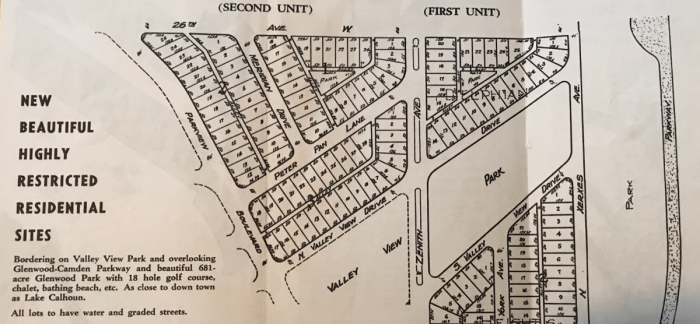
Geographic prevalence and target groups:
Racial covenants were prevalent in various regions across the United States, but they were particularly prominent in the northern and western parts of the country. They were not limited to a single geographic area but existed in both urban and suburban settings. Some cities, such as Chicago, Los Angeles, Minneapolis, and Detroit, saw a significant proliferation of racial covenants.
The target groups of racial covenants varied, but the primary focus was on African Americans. These covenants explicitly prohibited the sale or rental of properties to African Americans, thereby reinforcing racial segregation. However, racial covenants also targeted other minority groups, including Asian Americans, Hispanic Americans, and Jewish Americans. The aim was to exclude and marginalize any non-white individuals, further perpetuating racial divisions and reinforcing discriminatory practices.
The development and implementation of racial covenants were not limited to a specific period but spanned several decades, with a peak in popularity during the early 20th century. The pervasive influence of racial covenants in housing and communities had far-reaching consequences, setting the stage for systemic racism and the perpetuation of housing disparities that continue to impact marginalized communities today.
Impact and Consequences of Racial Covenants
Creation of segregated neighborhoods:
One of the significant impacts of racial covenants was the creation and perpetuation of racially segregated neighborhoods. By explicitly prohibiting non-white individuals from residing in certain areas, racial covenants facilitated the development of homogenous white communities. These covenants effectively limited housing options for minority groups, confining them to specific neighborhoods characterized by limited resources, inadequate infrastructure, and reduced access to essential services. The result was a stark division between racially segregated communities, further deepening social divisions and perpetuating racial inequality.
Reinforcement of racial inequality and discrimination:
Racial covenants reinforced and exacerbated racial inequality and discrimination. They served as legal mechanisms to enforce racial segregation and exclusion, institutionalizing discriminatory practices in housing. By denying non-white individuals the opportunity to live in certain areas, racial covenants perpetuated the notion of white superiority and non-white inferiority. This systemic discrimination deprived marginalized communities of social and economic opportunities, reinforcing existing power imbalances and limiting upward mobility. The long-lasting effects of these discriminatory practices can still be seen today, as communities continue to struggle with the consequences of historical segregation.
Economic and educational disparities:
Racial covenants had profound economic and educational consequences for marginalized communities. Segregated neighborhoods resulting from these covenants often lacked access to quality educational institutions, job opportunities, and essential services. Limited access to quality education impeded social mobility and economic advancement for non-white individuals. Additionally, the devaluation of properties in minority communities due to discriminatory practices affected the accumulation of wealth and perpetuated economic disparities. Racial covenants thus played a significant role in widening the wealth gap between white communities and marginalized communities, creating a cycle of economic disadvantage and limited opportunities for generations to come.
Moreover, the consequences of racial covenants extended beyond individual experiences to impact entire communities. The concentration of poverty, limited resources, and inadequate infrastructure in segregated neighborhoods created a cycle of disinvestment and neglect, further entrenching systemic disparities.
Addressing the impact of racial covenants requires acknowledging and actively working to dismantle the structures of segregation and discrimination they helped establish. Efforts towards equitable housing policies, fair lending practices, and educational reforms are essential in rectifying the historical injustices perpetuated by racial covenants. By promoting inclusivity, equal opportunity, and access to resources, we can strive to overcome the lingering consequences of racial covenants and build a more just and equitable society for all.
Challenges and Resistance to Racial Covenants
Legal battles and landmark Supreme Court case:
Racial covenants faced legal challenges as individuals and organizations fought against their discriminatory nature. One significant landmark case was Shelley v. Kraemer in 1948. In this case, the Supreme Court ruled that state courts could not enforce racial covenants, declaring them unenforceable by the government. Although the ruling did not make racial covenants illegal per se, it rendered them ineffective in the eyes of the law. This decision marked a significant step towards dismantling racially discriminatory practices in housing.
Civil Rights Movement and its impact:
The Civil Rights Movement of the 1950s and 1960s played a crucial role in challenging racial discrimination, including racial covenants. Activists and organizations fought for equal rights and worked to eradicate segregation and discrimination in all aspects of society, including housing. Through protests, legal battles, and grassroots organizing, the Civil Rights Movement shed light on the systemic injustices perpetuated by racial covenants. The movement's impact was instrumental in raising public awareness, mobilizing support, and pressuring lawmakers to enact reforms.
Fair Housing Act of 1968:
The Fair Housing Act of 1968, passed as part of the Civil Rights Act, stands as a significant legislative achievement in the fight against racial covenants and housing discrimination. The act made it illegal to discriminate in housing based on race, color, religion, sex, or national origin. It provided a legal framework for challenging discriminatory practices and established the Department of Housing and Urban Development (HUD) to enforce fair housing regulations. The Fair Housing Act aimed to dismantle systemic barriers and promote equal access to housing opportunities for all individuals, regardless of their race or background.
While the Fair Housing Act was a significant milestone, the legacy of racial covenants and their impact persisted. Many communities continued to face the enduring effects of segregation and housing disparities. Efforts to enforce fair housing laws, promote desegregation, and combat discriminatory practices remain ongoing.
It is important to recognize the achievements made in challenging racial covenants and the legacy of the Civil Rights Movement. However, the work of creating truly inclusive and equitable communities requires ongoing vigilance and continued efforts to address the systemic issues that continue to perpetuate housing disparities. By fostering awareness, advocating for policy changes, and promoting fair and equitable housing practices, we can strive towards a future where everyone has access to safe, affordable, and discrimination-free housing.
Legacy and Contemporary Implications of Racial Covenants
Lingering effects of racial covenants:
The legacy of racial covenants continues to have lasting effects on communities and individuals today. While racial covenants themselves may no longer be enforceable, the impact of their historical exclusionary practices is still felt. Racially segregated neighborhoods persist, with implications for economic disparities, educational opportunities, and overall quality of life. The social divisions and stigmatization resulting from historical segregation can perpetuate stereotypes and prejudices, contributing to ongoing challenges of social cohesion and racial tensions.
Housing disparities and ongoing challenges:
Racial covenants played a significant role in creating and perpetuating housing disparities that persist to this day. Minority communities, particularly African American and Hispanic communities, often face limited access to affordable and quality housing options. Segregated neighborhoods can lack the necessary infrastructure, resources, and amenities, leading to concentrated poverty and limited economic opportunities. Housing disparities intersect with other social and economic inequities, exacerbating challenges related to education, healthcare, and upward mobility. The ongoing struggle for fair and equitable housing remains a critical issue in addressing racial disparities and promoting social justice.
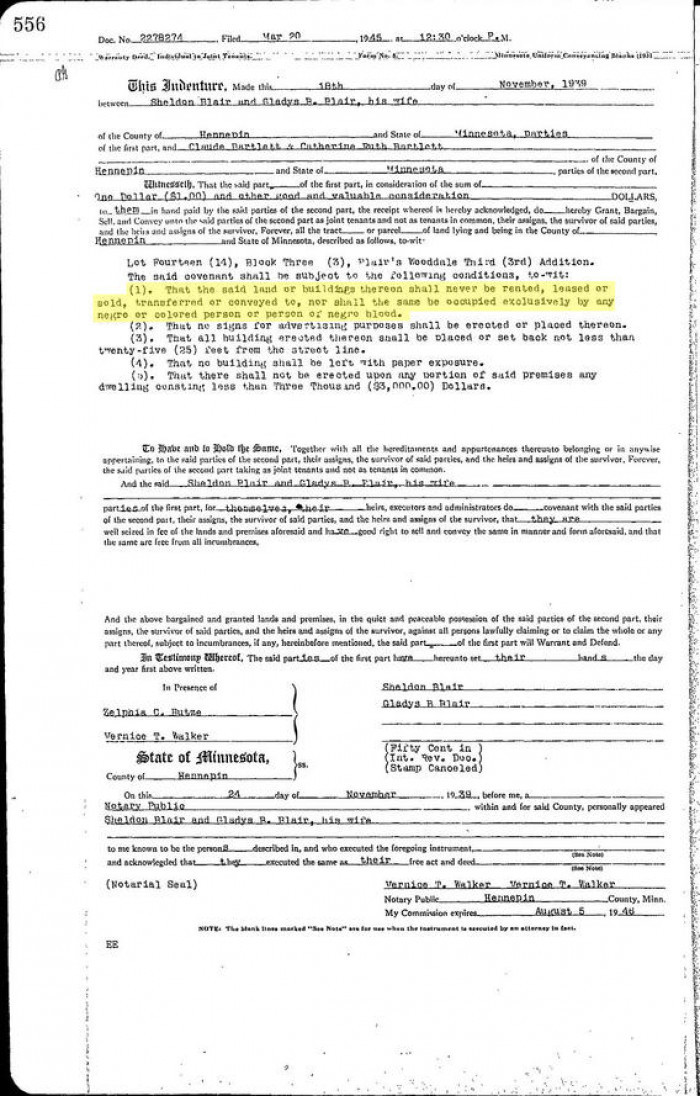
Efforts for fair and equitable housing:
In response to the legacy of racial covenants, various efforts have been made to promote fair and equitable housing practices. Advocacy groups, community organizations, and policymakers continue to work towards dismantling discriminatory housing practices and creating inclusive communities. Efforts include promoting affordable housing initiatives, advocating for stronger fair housing laws and regulations, and implementing programs to address housing discrimination. Additionally, initiatives focused on community development, urban revitalization, and equitable zoning aim to address the historical legacies of segregation and promote diverse, inclusive neighborhoods.
Efforts to address the contemporary implications of racial covenants also involve increasing awareness and education about their historical significance. Recognizing the enduring impact of past discriminatory practices is crucial for fostering empathy, understanding, and collective action towards achieving housing justice and racial equity. By fostering dialogue, engaging communities, and implementing inclusive policies, we can work towards breaking down barriers, reducing housing disparities, and creating opportunities for all individuals to access safe, affordable, and discrimination-free housing.
While progress has been made, continued efforts to challenge discriminatory practices, confront systemic inequities, and promote fair and equitable housing are necessary to overcome the legacy of racial covenants and build a society that upholds the principles of justice, equality, and inclusivity.
Organizations looking to use technology to change Racial Covenants
While legal actions and advocacy have helped address the legacy of these discriminatory practices, there is still work to be done to rectify the past and promote inclusive communities. Justdeeds.com is a platform that has emerged as a powerful tool in this ongoing fight for justice and equality.
Justdeeds.com is an online platform that aims to address the lingering effects of racial covenants by offering a unique service: the removal and rectification of racially restrictive language in property deeds. These deeds often contain explicit racial covenants that restrict property ownership based on race or ethnicity. By providing a streamlined process for removing these discriminatory clauses, Justdeeds.com helps homeowners and communities take a proactive step towards rectifying historical injustices.
The platform operates by connecting individuals with a network of attorneys who specialize in property law and racial covenant removal. Through a simple and efficient process, homeowners can initiate the review and rectification of their property deeds. The attorneys work to identify and remove racial covenants, ensuring that the deeds reflect an inclusive and equitable approach to property ownership.
The impact of Justdeeds.com extends beyond the individual homeowners. By removing racial covenants, the platform contributes to breaking down the barriers that perpetuate housing disparities and segregation. It helps create a more inclusive and welcoming environment, fostering a sense of belonging for all residents. Additionally, the removal of discriminatory language from property deeds sends a powerful message, challenging the historical injustices and promoting a more equitable future.
Justdeeds.com also recognizes the educational value of their work. They strive to raise awareness about the history and impact of racial covenants through educational resources and community outreach. By providing accessible information, they empower individuals and communities to understand the historical context and engage in conversations about the importance of addressing systemic discrimination in housing.
While the task of rectifying the effects of racial covenants is immense, Justdeeds.com provides a tangible and impactful solution. By partnering with homeowners and legal professionals, the platform actively contributes to dismantling the legacy of discriminatory housing practices and promoting fair and equitable communities. Through their work, Justdeeds.com exemplifies the importance of utilizing innovative approaches to rectify historical injustices and foster a society where housing is truly accessible to all, regardless of race or ethnicity.
In addition to the efforts of Justdeeds.com, another significant initiative that addresses the historical impact of racial covenants is the University of Minnesota's Mapping Prejudice project. This groundbreaking project combines historical research, data analysis, and community engagement to uncover and document the extent of racial covenants in Minneapolis.
The Mapping Prejudice project utilizes archival research to identify properties that were subject to racial covenants in the past. By examining historical documents, including property deeds and real estate records, the project team has been able to map the spatial distribution of racial covenants throughout the city. This mapping process helps visualize the pervasive nature of discriminatory housing practices and their impact on shaping neighborhoods.
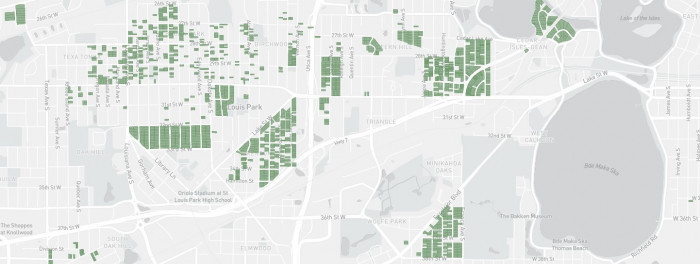
Mapping Prejudice, University of Minnesota
Through community engagement and collaboration, the project encourages individuals to contribute their own stories and experiences related to racial covenants. By sharing personal narratives and memories, community members actively participate in building a comprehensive understanding of the lasting effects of discriminatory practices. The Mapping Prejudice project not only aims to uncover the historical prevalence of racial covenants but also seeks to create awareness and promote dialogue about the ongoing impacts of segregation and discrimination. By making their findings accessible to the public through interactive maps and educational resources, the project facilitates a deeper understanding of the systemic barriers that continue to affect communities today.
The collaboration between Justdeeds.com and the University of Minnesota's Mapping Prejudice project exemplifies a multidimensional approach to addressing racial covenants. While Justdeeds.com focuses on the rectification of discriminatory language in property deeds, the Mapping Prejudice project provides a broader context by revealing the widespread nature of racial covenants and fostering a community-driven conversation about their legacy.
By combining legal action, community engagement, and research, these initiatives contribute to a more comprehensive understanding of racial covenants and their impact. They work together to rectify historical injustices, promote inclusivity, and foster a society where housing is free from discrimination and accessible to all.
Racial Covenants
Racial covenants represent a dark chapter in our history, perpetuating segregation and inequality in housing. Reflecting on their historical significance, it becomes evident that these discriminatory practices were a means to enforce racial hierarchies and maintain social and economic dominance. The motivations behind racial covenants were deeply rooted in racism and a desire to exclude and marginalize non-white individuals.
Addressing the legacy of racial covenants is of utmost importance. The impacts of these discriminatory practices are still felt today, with racially segregated neighborhoods, housing disparities, and ongoing challenges of social and economic inequality. The consequences of racial covenants extend beyond individual experiences, affecting entire communities and perpetuating systemic inequities.
It is crucial that we actively work towards rectifying the injustices perpetuated by racial covenants. This calls for a collective effort to promote inclusivity and equality in housing. We must continue to challenge discriminatory practices, advocate for fair housing policies, and create diverse and inclusive communities.
Initiatives like Justdeeds.com and the Mapping Prejudice project demonstrate the power of innovative approaches in addressing the legacy of racial covenants. By rectifying discriminatory language in property deeds and mapping the extent of racial covenants, these initiatives shed light on the pervasive nature of discrimination and empower individuals and communities to take action.
As individuals and as a society, we have a responsibility to confront the systemic barriers that perpetuate housing disparities and inequality. By promoting fair and equitable housing practices, supporting efforts to address systemic discrimination, and fostering inclusive communities, we can create a future where everyone has access to safe, affordable, and discrimination-free housing.
The legacy of racial covenants reminds us of the importance of actively challenging discrimination and promoting social justice. By learning from the past, engaging in honest dialogue, and taking concrete actions, we can build a society where housing is truly inclusive and reflective of the principles of equality and human dignity. Together, let us work towards a future where the barriers created by racial covenants are dismantled, and where housing opportunities are available to all, regardless of their race or ethnicity.
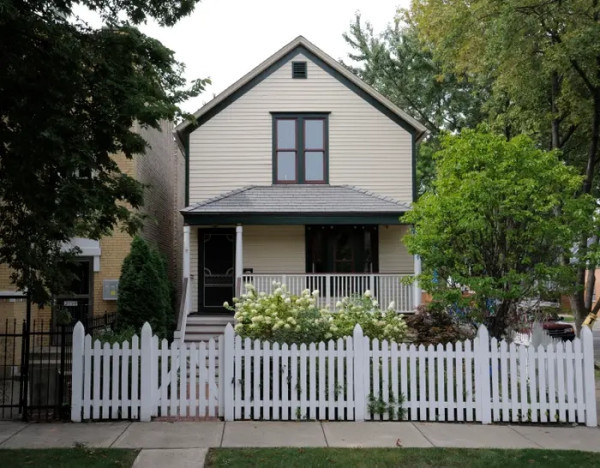
Disney's Childhood Home: Not Just the Birthplace of the Animation King
Walt Disney was born in a two-story home in Chicago, but he eventually left, leaving the house behind. Who were the other occupants? And what does the house look like now?

1709 Broderick Street: The Real Full House Home in San Francisco
Step inside the history of 1709 Broderick Street, the real Full House home in San Francisco. From its 1883 Victorian beginnings to TV fame, this house has stories to tell.

Cracking the code of home history: A free resource list to uncover Your home's past
Want to learn more about your home's history? Check out our insider tips and tricks to get the most out of your search.

The Story of 1807 Dupont Avenue South: A Minneapolis Queen Anne With 120 Years of History
Step inside 1807 Dupont Avenue South, a historic Queen Anne home in Minneapolis. From three generations of the Jamieson family to a modern restoration, this house has seen it all.
